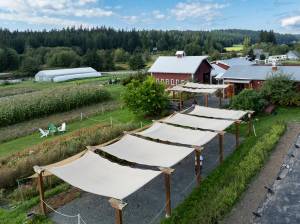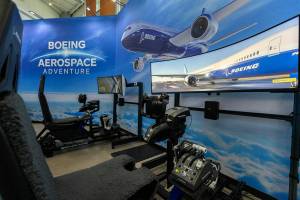Set in Granite
Published 9:00 pm Sunday, March 7, 2004
When managers at B.I.C. Inc. searched nearly two years ago for an ideal location for their electrical equipment manufacturing business, they looked at industrial sites in several Snohomish County cities.
In the end, they chose Granite Falls.
Unlike B.I.C.’s longtime hometown of Woodinville, Granite Falls offered inexpensive land and little traffic and was convenient to a pool of dependable and affordable workers.
"One of the things we moved up here for was to improve the workforce. A lot of people living in Granite Falls and Lake Stevens don’t want to work in Seattle," said Carey Gasper, B.I.C.’s general manager and a resident of Snohomish.
Even as a fair portion of industrial space around Everett sits empty, a few industrial companies are being lured by lower rents and less traffic in outlying communities.
Industrial companies — from machine shops and boat manufacturers to electronics companies — have a well-established presence in places like Arlington and Monroe. Granite Falls has past ties to the timber industry, but the arrival of newer industrial businesses began in earnest about two years ago.
That’s when Harry Wood, chief executive officer of Competitive Development &Manufacturing Inc., decided to move his firm from Arlington after 25 years there. He settled on 3 acres along the Mountain Loop Highway and erected a nearly 9,000-square-foot metal building to house his metal fabrication firm.
The area in the city’s northeast corner along the Mountain Loop Highway already had been zoned for industrial use, and Wood hoped to use the rest of his property as a business park.
He recently snagged two tenants for his second building and is planning to put up two more in the near future.
"I already have the building permits in hand; we’re just waiting for the weather to clear," he said last week.
Wood said smaller companies like his have been attracted by the relatively cheap rent he charges and by the lack of traffic congestion. Closer to the I-5 corridor, lease charges and transportation woes increase, both of which can hurt businesses, he said.
"Everybody’s got to be tight with their margins and reduce their overhead to compete," Wood said.
Since Wood established his industrial park, other companies have moved in on nearby land. Next to B.I.C. is Priceless Granite Inc., which moved from Lake Stevens less than six months ago.
Lyle Romack, the mayor of Granite Falls, couldn’t be happier about the growing industrial area, as well as the jobs and tax revenues it has created.
"Every city needs their industrial area. It brings in employment, so you look to bring in places where people can work in close proximity to the city," Romack said. "My feeling is we’re just getting started."
Wood said he is thinking about obtaining more land for future industrial development in that area.
But Granite Falls’ modest success isn’t reflective of the county as a whole. According to Colliers International, the vacancy rate for industrial buildings in Snohomish County was above 22 percent as 2003 ended. Other property brokerage firms estimated the vacancy rate between 17 and 19 percent.
Much of the empty space is in south Everett and Mukilteo, where the Boeing Co. has moved out of several large buildings and put them up for lease.
As a result, asking rents for most industrial buildings are down, said Brian Kenworthy, a senior vice president with GVA Kidder Mathews who deals with industrial properties in the Arlington and Marysville areas.
While many cities have economic development plans that call for setting aside room for industrial businesses, it doesn’t make sense to add new buildings right now, Kenworthy said.
"There’s no real job growth in the manufacturing sector, which is what brings in the demand," he said.
A 2002 report to the Evergreen Crescent Initiative, a group of business and political leaders from the cities east of Everett, concluded about the same thing. Though the rural areas may attract some industry, especially from King County, in the years to come, developers will only need about four to six acres per year in each town, the report said.
The report added that the advantages of having cheaper land and less traffic won’t outweigh the need for some companies to be close to I-5.
Gordon Cole, who serves on the city of Snohomish’s economic development committee, said the reality is that it’s hard to attract new industrial businesses. While Snohomish has business parks that can host smaller firms, those that need large spaces usually go to Everett, Monroe or Arlington, he said. And in a market with plenty of empty space, even some buildings more strategically located near I-5 can offer competitive rents.
"We have to attract businesses that want to specifically be in Snohomish," Cole said.
At B.I.C., Gasper said he looked for space in both Snohomish and Monroe before arriving at the Granite Falls site.
His two dozen workers will move soon from their temporary work spaces, including a house and some trailers, into a new three-story building on the same property. That will help improve efficiency as they assemble boat instrument panels, wire harnesses and related components for customers that include Fluke Corp. and General Motors.
Gasper said the only downside he’s found in moving to Granite Falls has been higher electricity rates compared to King County. The new building, he noted, will use propane for its heat.
"Everybody can find us if they look," he said, "and the traffic is great."
Reporter Eric Fetters: 425-339-3453 or fetters@heraldnet.com.




